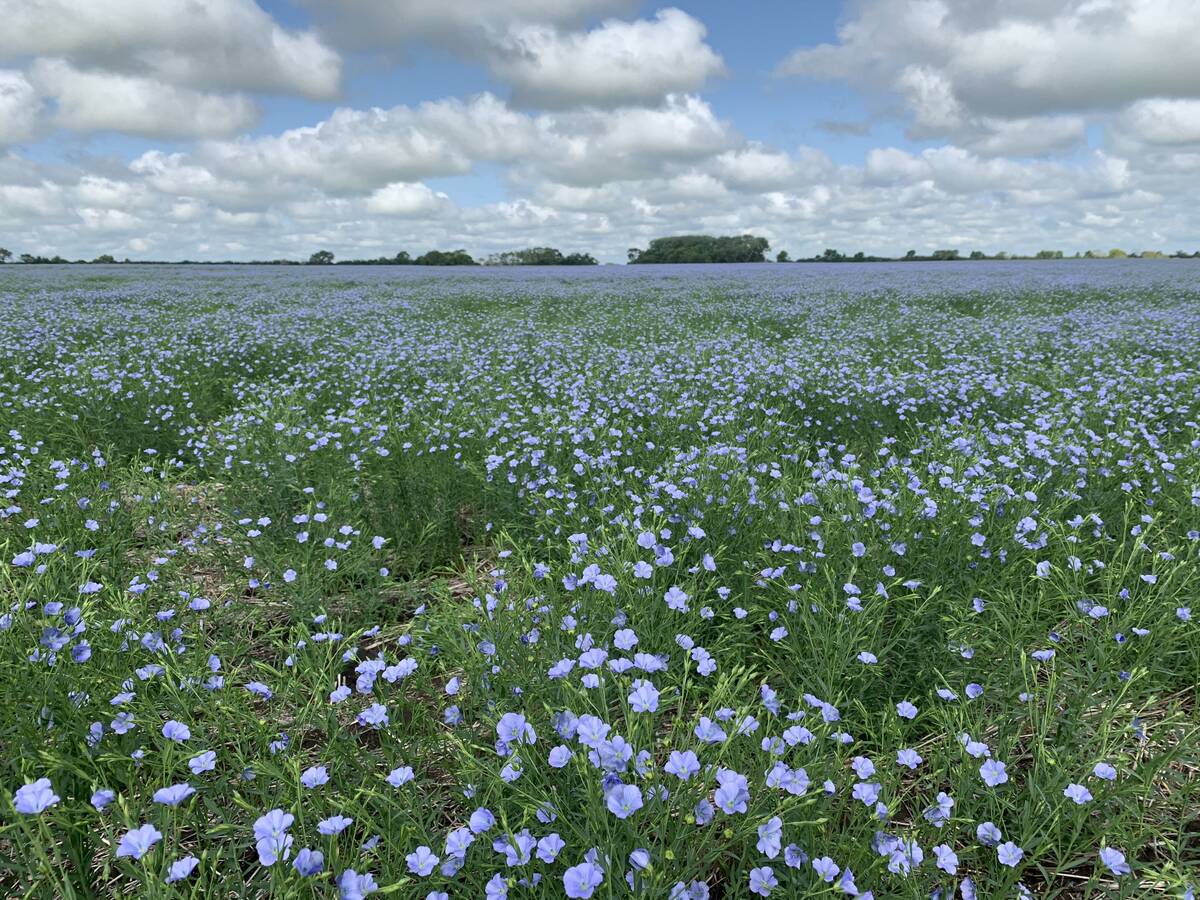SASKATOON — Prairie Clean Enterprises plans to have a flax straw processing facility up and running by the end of the year.
The company has leased a 30,000 sq. foot building that is being retrofitted to become a processing plant.
“We found a facility in Weyburn that is perfect,” said Brita Lind, PCE’s chief strategy officer.
The building used to be a whiskey bottling plant and warehouse.
All the approvals and permits are in place, and the engineering work has been completed to ensure the facility can be upgraded to accommodate the necessary equipment.
Read Also

VIDEO: Ag in Motion documentary launches second season
The second season of the the Western Producer’s documentary series about Ag in Motion launched Oct. 8.
Lind said the equipment should start arriving in late August or early September.
It will be installed and tested, and the company intends to be producing flax fibre in October and pelleting the shive in November.
Tracy Broughton, executive director of SaskOilseeds, said it will be the only flax straw processing plant that she knows about.
“It’s a good marketing opportunity for farmers within that region where it’s being built,” she said.
Farmers who consistently grow flax have figured out ways to deal with the straw, but growers who don’t have much experience with the crop find it a pain.
“They like to see trash on the field for next year, but flax straw is just a little bit too much,” said Broughton.
A lot of flax seed processing happens in Regina, so it will be good to have a straw processing plant nearby, she said.
PCE initially planned to build its first plant in Regina. At that time, the plan was just to process and pelletize the straw.
However, the company learned there was a shortage of flax fibre in Europe for the pulp and specialty paper industry.
“We said, ‘hey, we have an abundance, we have a secure supply,’ ” said Lind.
The firm decided to switch gears, opting to decorticate the straw and create one production line for baling fibre and another for pelletizing the shive.
“We knew we needed a bigger facility than the Regina one,” she said.
“We just needed a bigger footprint and also more storage.”
The fibre will be sold to European customers.
PCE is also working on selling fibre as a bio-composite with a focus on automotive door panels, trim and load floors.
The pellets are used to make a variety of products, including cat litter.
The Regina Humane Society conducted a trial study of the product in 2024 and has entered into a partnership with PCE.
“Not only does this product perform well in our shelter, but it also reflects our commitment to supporting local innovation and sustainability,” Bill Thorn, director of marketing and public relations with the Regina Humane Society, said in a press release.
PCE has agreed to supply its Prairie Clean Litter to the charitable organization at no cost. In addition, every adopter who welcomes a cat into their home will be provided with a complementary bag of litter or a voucher to obtain one.
The pellets will also be sold as animal bedding. That product was sold to Amish horse owners in Pennsylvania and Indiana in 2023.
“They’re tough customers because those are working horses. That’s their livelihood,” said Lind.
“We got a phone call from the gentleman in Pennsylvania, and he said, ‘my barns have never smelled so good.’ So, we knew we had a winner.”
PCE will eventually add a third product, which will be pellets used for fuelling biomass boilers.
“The flax straw performs extremely well as biomass fuel — like, it’s really good,” she said.
The company bought 10,000 tonnes of flax straw in 2023 and 2024 and another 10,000 tonnes in 2025.
“We have everything we need for our production this fall and winter,” said Lind.
It hopes to purchase another 60,000 tonnes in 2025. The goal is to be buying and processing 500,000 tonnes of flax and other straws by 2030.
The plan is to eventually build multiple facilities across the Prairie region.
PCE hopes to initially source most of its flax straw from a 100 to 150 kilometre radius of the Weyburn plant. Lind said they get calls every day from people wanting to sell them straw.
More than one million tonnes of flax straw are burned each year in the North American Prairie region.
The company pays farmers $40 per tonne for their round or square straw bales in addition to between $20 to $70 per tonne for transportation, depending on the distance to the Weyburn plant.
Farmers can fill out a form on the company’s website (prairiecleanenergy.com) to get on their straw purchasing list.
Growers are paid one-quarter on confirmation of stored bales and the remainder upon confirmation of pick-up.
Bales must be at least 900 pounds with 15 percent moisture content or less. They need to be free of rocks and have minimal weed content.


















